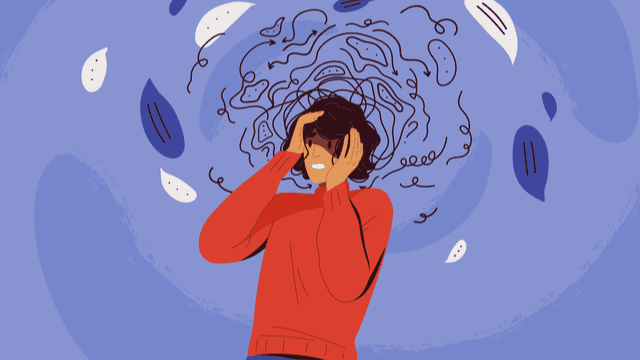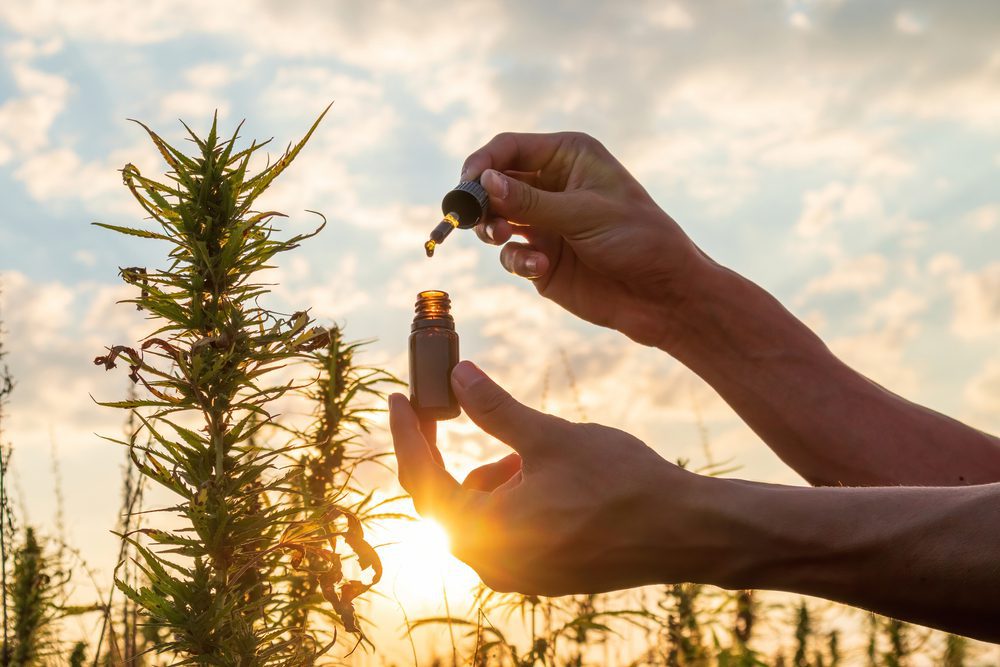Medical Marijuana For Urinary Incontinence
As a result of its legalization in some jurisdictions, the use of marijuana for therapeutic purposes has grown massively over the last several years.
An overactive bladder problem is a chronic condition that can present itself with or without incontinence and manifests as anxiety, nocturia, and frequent urination. This ailment may severely decrease a patient’s quality of life.
Recent research has centered on the question of whether or not the use of medical marijuana to treat symptoms of urinary incontinence would be useful. A few randomized controlled trials have shown that extracts of marijuana can alleviate neurogenic and refractory disorders.
What is CBD?
Cannabidiol is the technical term for CBD. It is one of the several compounds discovered in cannabis Sativa plants, which are the same species as hemp and marijuana. Since CBD was made lawful at the state level and is currently allowed in most states, there has been an explosion in both the availability of CBD and expenditures of CBD products across the United States.
Regarding consumption, CBD is available in various products and forms, including the following:
- CBD Oils
- CBD Capsules
- Drops
- Tears
- Candies
- Vapor

Does CBD really work for anxiety?
Anxiety is a common occurrence that a growing number of people have experienced over the past several years. One of the primary beneficial proponents of CBD is the compound’s alleged capacity to alleviate that state. Now is the best time to know, does cbd really work for anxiety?
Currently, it is unclear how CBD can cure anxiety in a patient. The amounts of the neurotransmitter serotonin could be altered, according to the findings of some studies, which would explain how it would function. According to the results of recent studies, elevating a person’s serotonin levels can be an effective treatment for anxiety. Some drugs, including antidepressants, work by modulating serotonin levels, and some research indicates that CBD may function similarly to antidepressant and anti-anxiety medicines.
Thus, patients who suffer from other types of anxiety could also benefit from CBD. Additionally, it has the potential to assist cure sleeplessness that gets brought on by anxiety.
A study was conducted in 2011 to investigate the effects of CBD on individuals suffering from Social Anxiety Disorders (SAD). Anxiety levels were significantly lower across the board for those who received CBD.

CBD oil for anxiety
With the variety of CBD forms, one question may come to mind. Does CBD oil really work for anxiety?
Typically, U.S. businesses market full-spectrum and broad-spectrum CBD oil.
- Broad-spectrum denotes the presence of cannabidiol and other naturally occurring cannabis plant substances but the absence of THC.
- Full-spectrum denotes the presence of traces of THC as well as cannabidiol and other naturally occurring cannabis chemicals.
Experts believe that full-spectrum CBD oil could be the greatest product category for treating anxiety disorders and other diseases due to the entourage effect, which maximizes the effects of cannabidiol by working in concert with other compounds.
So, how long does CBD oil take to work for anxiety? CBD oils, edibles, and pills start acting between 30 minutes to 2 hours. Smoking CBD oil or cannabis buds have instant effects. Consult a doctor if you want to try CBD oil for anxiety.
Conclusion
CBD comes with many benefits. Before using it, it is important to consult a doctor first.
Want to learn more? Read 5 Daily Practical Uses For CBD Oil.
FAQ
Does THC in strain help with anxiety?
Generally, THC in small amounts reduces the level of anxiety, but in large doses it can increase it. However there is a strain called Kosher Kush that comes out from this pattern. Due to their genetic makeup, numerous Kush strains exhibit a consistent combination of high levels of THC and notable amounts of the terpene trans-nerolidol, which are often employed in the treatment of anxiety and stress.
What should I look for when choosing an anxiety-relieving cannabis strain?
When choosing an anxiety-relieving cannabis strain, consider the following factors:
- Strains with higher CBD (cannabidiol) levels are believed to have potential anti-anxiety effects.
- Terpenes present in the strains contribute not only to its aroma but also it may offer additional anxiety-relieving benefits. Terpenes like myrcene, caryophyllene, and limonene are commonly associated with anxiety relief.
- THC:CBD Ratio should be balanced or should contain higher CBD content.
- Reading user reviews and seeking recommendations from others who have used the strain for anxiety relief can provide valuable insights.
Can cannabis strains help with anxiety?
Yes, certain cannabis strains can help alleviate anxiety. These strains are specifically bred or selected for their potential anti-anxiety properties. They contain various cannabinoids and terpenes that work together to provide calming and relaxing effects.
What stroke symptoms can marijuana help with?
Medical marijuana has the potential to help with certain stroke symptoms such as frustration, sadness, anxiety, fear, depression, and feelings of hopelessness. It may also assist with pain management, including post-stroke pain, and provide relief for unexplained headaches experienced by stroke victims.
What are possible side effects of medical marijuana?
Side effects of medical marijuana may include dizziness, fatigue, dry mouth, headache, nausea, short-term memory and focus issues. In some cases, there is also a low risk of developing schizophrenia or addiction. However, medical marijuana can also offer many health benefits such as improved sleep and enhanced mood.
What are the active ingredients in medical marijuana?
Medical marijuana contains two main active ingredients: CBD (cannabidiol) and THC (delta-9 tetrahydrocannabinol). Different strains have varying concentrations of these ingredients. CBD is known for its anti-inflammatory and pain-relieving properties without causing a psychoactive "high," whereas THC is responsible for the psychoactive effects often used for patients in significant pain.
Why is medical marijuana used for ulcerative colitis?
Medical marijuana may be used for ulcerative colitis due to the presence of cannabinoids that bind with endocannabinoid receptors in the body, including those located in the gastrointestinal tract. While there are no definitive studies confirming the efficacy of cannabis for inflammatory bowel diseases, many patients use it to manage pain, nausea, and appetite.
Can someone be allergic to marijuana?
Yes, it is possible to be allergic to marijuana. Some individuals may experience allergic symptoms such as a runny nose, congestion, or watery eyes when using cannabis. Serious allergic reactions are rare but can occur. It is advisable to be cautious and consult a doctor before using medical marijuana.
Can medical marijuana be used for treating allergies?
Medical marijuana may provide relief for certain symptoms of seasonal allergies, such as headaches. However, smoking or vaping can further irritate the airways. Alternative methods of consumption, like cannabis-infused coconut oil or edibles, may be more suitable for managing seasonal allergy symptoms.
Can medical marijuana be used alongside thyroid medication?
If you are taking thyroid hormone medication, it is important to consult with your doctor before considering medical marijuana as an additional treatment option. Medical marijuana has been proven to help alleviate symptoms like headaches, nausea, and irritability commonly associated with thyroid disease, however it is crucial to consult your doctor before taking it.
Can medical marijuana help with sleep issues?
Yes, medical marijuana has been found to help with sleep problems for some individuals. Certain strains of marijuana contain compounds such as THC and CBD, which have sedative properties that can promote relaxation and aid in falling asleep
How does medical marijuana help with sleep?
Medical marijuana interacts with the endocannabinoid system in the body, which plays a role in regulating sleep patterns. The compounds in marijuana can help reduce anxiety, relieve pain, and induce drowsiness, thus improving the quality and duration of sleep for some individuals.
Can medical marijuana enhance concentration?
The effects of medical marijuana on concentration can vary from person to person. While some individuals may experience increased focus and attention, others may experience difficulty concentrating or feel more mentally foggy. It's important to note that individual reactions to marijuana can differ
Are there specific strains of medical marijuana that can help with concentration?
Certain strains of medical marijuana, particularly those with higher CBD content and lower THC levels, are believed to have more potential for enhancing concentration. These strains may provide the benefits of increased focus and mental clarity without the psychoactive effects typically associated with high THC strains.
What are some of the best edibles for promoting sleep?
When it comes to edibles for sleep, those with higher levels of CBD are often recommended. CBD has calming properties that can aid in relaxation and contribute to better sleep. Edibles such as CBD-infused gummies, chocolates, or capsules are commonly used for this purpose.
How long does it take for edibles to take effect for sleep?
The onset of effects from edibles can vary, but generally, it takes anywhere from 30 minutes to 2 hours for the effects to be felt. Factors such as metabolism, the contents of the edible, and individual tolerance levels can influence the timing. It's important to start with a low dosage and allow ample time for the edible to take effect before consuming more.
Can medical marijuana effectively help veterans with PTSD?
Medical marijuana has shown promise in helping veterans cope with PTSD symptoms. The cannabinoids in marijuana interact with the endocannabinoid system, which plays a role in regulating emotions and memory. By reducing anxiety, promoting relaxation, and potentially modulating traumatic memories, medical marijuana may provide relief for some veterans with PTSD.
Are there any risks or side effects associated with medical marijuana use for PTSD?
While medical marijuana can be beneficial for some veterans with PTSD, it's important to note that individual reactions and side effects may vary. Common side effects include dry mouth, increased appetite, and temporary cognitive impairment. Additionally, marijuana's psychoactive effects may not be suitable for everyone, and careful monitoring by a healthcare professional is recommended.
How long is a medical marijuana card valid for?
The validity of a medical marijuana card depends on the regulations of the specific state or country where it was issued. In many cases, medical marijuana cards are valid for a period of one year from the date of issuance. However, it's important to check the local regulations and renew the card accordingly.
What is the process for renewing a medical marijuana card?
The process for renewing a medical marijuana card also varies by jurisdiction. Typically, it involves submitting a renewal application, providing updated medical documentation if required, and paying the necessary fees. It's advisable to start the renewal process well in advance to ensure continuity of access to medical marijuana.
